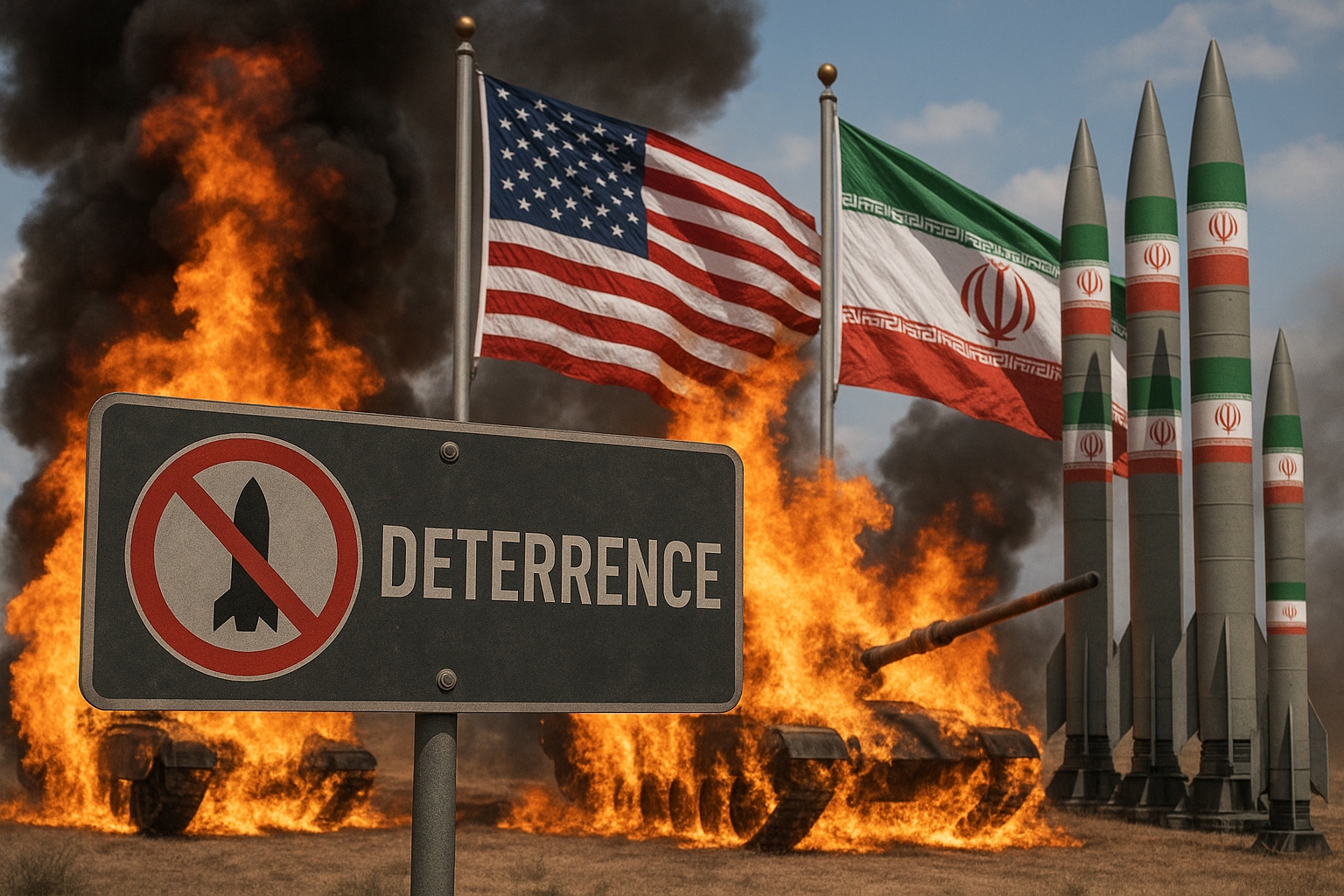Growing tension with Iran fractures US-Israel alliance
Empowering Weak & OppressedAhmet Aslan
Rabi' al-Awwal 09, 1433 2012-02-01
Main Stories
by Ahmet Aslan (Main Stories, Crescent International Vol. 40, No. 12, Rabi' al-Awwal, 1433)
The shrill US-Israeli war rhetoric against Iran goes hand in glove with covert operations, such as the assassination of Iranian nuclear scientists, Stuxnet Virus to disrupt Iran’s uranium enrichment and also reportedly replacing street signs and bricks in buildings with ones equipped with radiation detectors. There are threats and actions to further isolate Iran by boycotting its oil to increase the economic and political pressure on the Islamic Republic.
Together, all these factors have given rise, however fleeting, to false hopes among Iran’s enemies that there is a possibility to force the Islamic Republic to yield to their demands. It seems, however, that they have not learned any lessons in more than three decades of dealing with the Islamic Republic. As long as Iran’s rulers hold firmly to Islamic teachings, there is no way that they would ever bow to US hegemony or the ludicrous demands being made of them.
This has been made clear on numerous occasions by the leaders of the Islamic Republic and most recently articulated yet again by the Rahbar, Imam Sayyid Ali Khamenei, leader of the Islamic Republic of Iran, at a gathering of military college students in Tehran on 11-19-2011. He stressed: “Iran is not a nation to sit still and just observe threats from fragile materialistic powers which are being eaten by worms from the inside. Iran will respond with full force to any aggression or even threats in a way that will demolish the aggressors from within.” Imam Sayyed Khamanei is very familiar with the nature of the “arrogant powers.”
A few months after his announcement the firm stance of Iran has started to pay off; the tide of events has started to take a different turn. The assassination of Iranian scientist Mostafa Ahmadi Roshan, who served as deputy director of commercial affairs at the Natanz uranium enrichment site proved a breaking point. It brought to the surface a rift between the US and Israel that had hitherto been kept from public view. The assassination carried all the hallmarks of the notorious Israeli spy agency, Mossad, and it has been reported by reliable Western sources that like all previous ones, the assassination of Dr. Roshan was carried out by Mossad using local proxies.
Although UN human rights bodies and other so-called reputable human rights NGOs have remained silent over the killing of the 32-year-old Iranian scientist, they are quick to condemn any wrongdoing, real or imagined, by Iran. Even the UN secretary general Ban ki Moon, when approached by Iran’s Ambassador to the UN, Dr. Mohammad Khazaee, to condemn the assassination of Iranian scientists, merely said he would “study the request.” Such disregard for human life when it concerns Iranians is revealing.
The US, however, took the unprecedented step of “categorically” denying any involvement in the incident. US Secretary of State Hillary Clinton announced: “I want to categorically deny any United States involvement in any kind of act of violence inside Iran… We believe that there has to be an understanding between Iran, its neighbors and the international community that finds a way forward for [Iran] to end its provocative behavior, end its search for nuclear weapons and rejoin the international community and be a productive member of it.”
While Clinton repeated a litany of unproven allegations against Iran, the statement categorically denying involvement in the assassination is unprecedented. In the past, the US had never used such vehement language to deny accusations of involvement in the assassination of Iranian scientists or officials. Based on this, numerous analysts speculated that the US statement had far reaching implications. A few days later another announcement made it clear that Clinton’s statement was expressing US disapproval of the Israeli assassination campaign of Iranian scientists.
Further, the spokesman for the US European Command, Captain John Ross, and Pentagon spokesman John Kirby broke the news to the media on January 15 that the US had decided to postpone joint military exercises codenamed “Austere Challenge 12” with Israel. It was to have been the largest-ever military exercise between the two countries that would have tested their defence capabilities against Iranian missiles. US policy makers are aware of the catastrophic consequences of war with Iran; it would be too risky and extremely costly; hence they have ruled out this option.
Yet, they have continued their war rhetoric and negative propaganda to demonize and therefore isolate Iran and prevent it from initiating proactive policies in the region. They always talk about their “red lines” but they have also been careful not to cross Tehran’s red lines to provoke any major military conflagration.This is precisely why the Obama regime was worried about the reckless Israeli assassination of the Iranian scientist carried out by Mossad agents without US knowledge, resulting in Washington “categorically” denying involvement.
What this means is that the US does not want Israel to escalate the situation by provoking harsh retaliation from Iran that would lead to an unwanted war. In order to make its position clear the US took the more drastic step of postponing the war games. Their logic was simple: if Israel could conduct high profile covert operations inside Iran, they may well unilaterally decide to launch an attack on Iran. According to an article published in the Asia Times Online, the Obama regime wanted assurances from Israel that it would not attack Iran without approval from Washington but Israeli Prime Minister Benjamin Netanyahu refused to do so. The US postponed the wargames in retaliation.
The Israeli view is that the US would not go alone in launching a military attack on Iran so the Zionists have been working hard to provoke a war that the US will be forced to get involved in. In January, Foreign Policy (FP) magazine provided insight into how Mossad was working behind the CIA’s back. FP reported that Mossad agents impersonating CIA agents recruited Jundullah members in London and used them for covert operations inside Iran, including assassinating senior members of the Revolutionary Guards. This evoked a harsh reaction from the Bush regime and brought to an end “intelligence” co-operation on Iran between the CIA and Mossad until Obama’s inauguration as president in January 2009.
This time the US delivered a blunt message via General Martin Dempsey, Chairman of the US Joint Chiefs of Staff, to the Zionists and asked that they also confirm it as Obama had demanded. On January 18, Defence Minister Ehud Barak told army radio about Israel’s official position regarding an attack on Iran: “We don’t have a decision to go forward with these things. We don’t have a decision or a date for taking such a decision. This whole thing is very far away.” Despite this, the US continues to pursue a policy to isolate Iran by imposing sanctions on financial institutions that do business with it. The principal target is Iranian oil exports that bring in the bulk of its earnings. The EU, led by Germany, France and UK, has aggressively supported US sanctions with the ostensible aim of cutting off financial support for Iran’s nuclear program.
German Foreign Minister Guido Westerwelle said the new sanctions would paralyze Iran’s nuclear program. “Even just the option of nuclear armament by Iran would have far-reaching negative consequences far beyond the Gulf region, so it is not acceptable, so, with new sanctions that we want to approve this month [approved on January 23], we are now targeting the heart of the Iranian nuclear program: its oil and, with that, its sources of financing.”It is, however, obvious that there is no way to reverse Iran’s peaceful nuclear program and any external action to stop it only increases Iranian determination.
Further, a good example of the futility of sanctions is presented by North Korea that unlike Iran has pursued a military nuclear program. While they have a much weaker economy than Iran and are in need of external food aid to feed the people, they have managed to join the nuclear club. Thus, it would not be realistic to expect Iran, endowed with vast natural resources and with far better economic and industrial prospects, to fail to achieve its nuclear objectives. Besides, there are serious doubts in the current climate of deep economic recession in the West about the extent to which the rest of the world would manage without Iranian oil merely to please the US, which is already declining. Iran’s largest oil and gas client China has already made clear it will not comply with US sanctions.
Although Beijing has made temporary cut backs of Iranian oil imports, the move, according to experts, is aimed at getting further discounted deals from Iran. In addition to importing 20% of total Chinese oil imports from Iran, the two countries have strong trade ties that reached $30 billion in 2010 and are expected to increase to $50 billion by 2015. Iranian oil is also strategically important for China; it knows that unlike other oil exporting countries, Beijing can depend on Iran in the event of a political or military showdown with the US. Japan, the number two buyer of Iranian oil, initially pledged its support but later asked for exemption from sanctions.
Japanese Ambassador to Tehran, Kinichi Komano told the Mehr News Agency in an interview published on January 19, that Japan is hesitant to implement the sanctions: “The law ratified in the United States has endangered the situation of Japanese companies, and in the Japanese government’s view, it is very difficult to implement these sanctions.” India, another important client of Iranian oil, has already announced that it will not comply with US sanctions. Turkey similarly has no intention of interrupting the flow of Iranian oil. This makes the EU’s sanctions quite insignificant since only 5% of EU combined oil imports come from Iran. Something as valuable and moveable as oil would not be difficult for Iran to sell elsewhere. In fact heightened tensions around the Persian Gulf have inevitably led to a hike in gasoline prices and larger profits for Iran.




